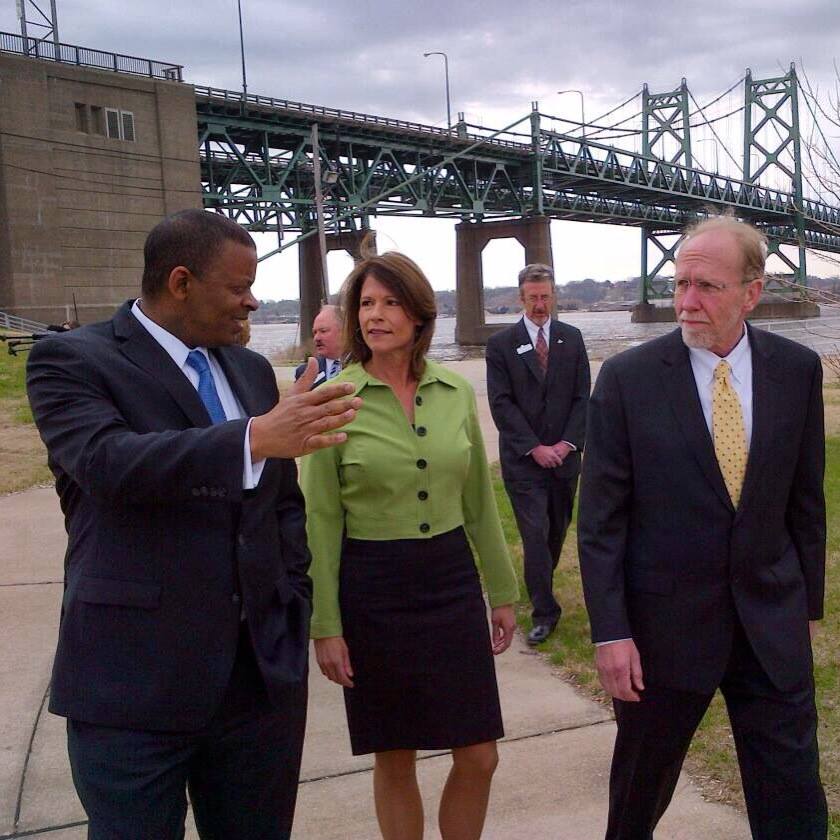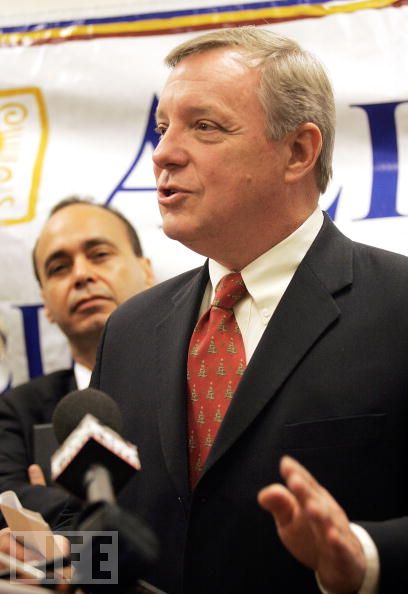
Congressional inaction on saving the nation’s transportation fund would have tangible impacts on projects planned for next year and beyond, forcing many long-awaited projects to halt indefinitely as soon as this summer. Illinois’ six-year plan for transportation improvements could be threatened, and one long-awaited enormous project on the border with Iowa could be a casualty.
Our new report we released yesterday chronicles the tangible financial impacts that the expected insolvency of the nation’s transportation trust fund would have on state and local transportation budgets beginning in the upcoming fiscal year. No new projects with a significant federal share will be able to get underway in the new fiscal year, which begins this October, if Congress fails to act.
What would that really mean for projects around the country?
In Illinois, Governor Quinn recently announced a six-year transportation plan to complete dozens of key projects, including the Englewood Flyover freight and passenger rail project, bridge replacements along the Stevenson Expressway, repaving and repair on I-74 in Decatur and reconstruction of Rte. 2 in Rockford. But because the plan anticipates using $6.99 billion in federal funding to match $1.16 billion in state funding and $450 million in local funding, projects may not make it off the drawing board without the certainty of that federal contribution.
Just last week, in the Quad Cities on the border of Iowa and Illinois, Transportation Secretary Anthony Foxx visited the site of a bridge replacement and accompanying corridor improvement that could face significant delays if new work can’t be started next year.
The I-74 bridges connecting Iowa and Illinois carry nearly half the traffic each day between the cities of this bi-state region where one of five workers crosses the river to go to work. The narrow, obsolete bridges date back to 1935 and were never designed to be part of an interstate highway system. This stretch of road sees more than three times as many crashes as comparable corridors and increased traffic on the bridge has created a critical bottleneck that also affects freight passing through the middle of the country on the national freight network.Replacing the I-74 bridges have been a top priority for regional leaders for the last two decades.
When Illinois and Iowa DOTs released a construction plan for coming years including more than $800 million programmed for the central bridge span, The Quad City Times editorialized that “The Quad-Cities’ biggest public construction project in history seems to suddenly move from planning to action.”
Yet collapsing federal funding would threaten that progress. Illinois’ improvements on adjoining streets have begun and Iowa is scheduled to begin construction next year. Beyond just next year, though, the long-term funding uncertainty created by the insolvent trust fund jeopardizes the progress of the entire corridor project,which will depend on reliable federal contributions.

Transportation Secretary Anthony Foxx tours the existing I-74 bridge site with Representatives Cheri Bustos (IL-17) and Dave Loebsack (IA-2) last week. Photo courtesy of Rep. Loebsack’s office.
We’ve heard many stories like this about the important projects that would come to a stop if Congress fails to rescue the nation’s transportation fund. But Congress must do more than just save the transportation fund. The local leaders we’ve been speaking with have made it clear that if Congress wants support for raising more revenue for transportation, they need to give these folks at the local level more reasons to believe that it will be to their benefit.
Last week we released a policy road map showing how we can resuscitate and reinvigorate the program in exciting ways, so that it better suits the needs of people in the communities where they live. It’s a great place to start.
—-
Download the Report Visit the Report Home





